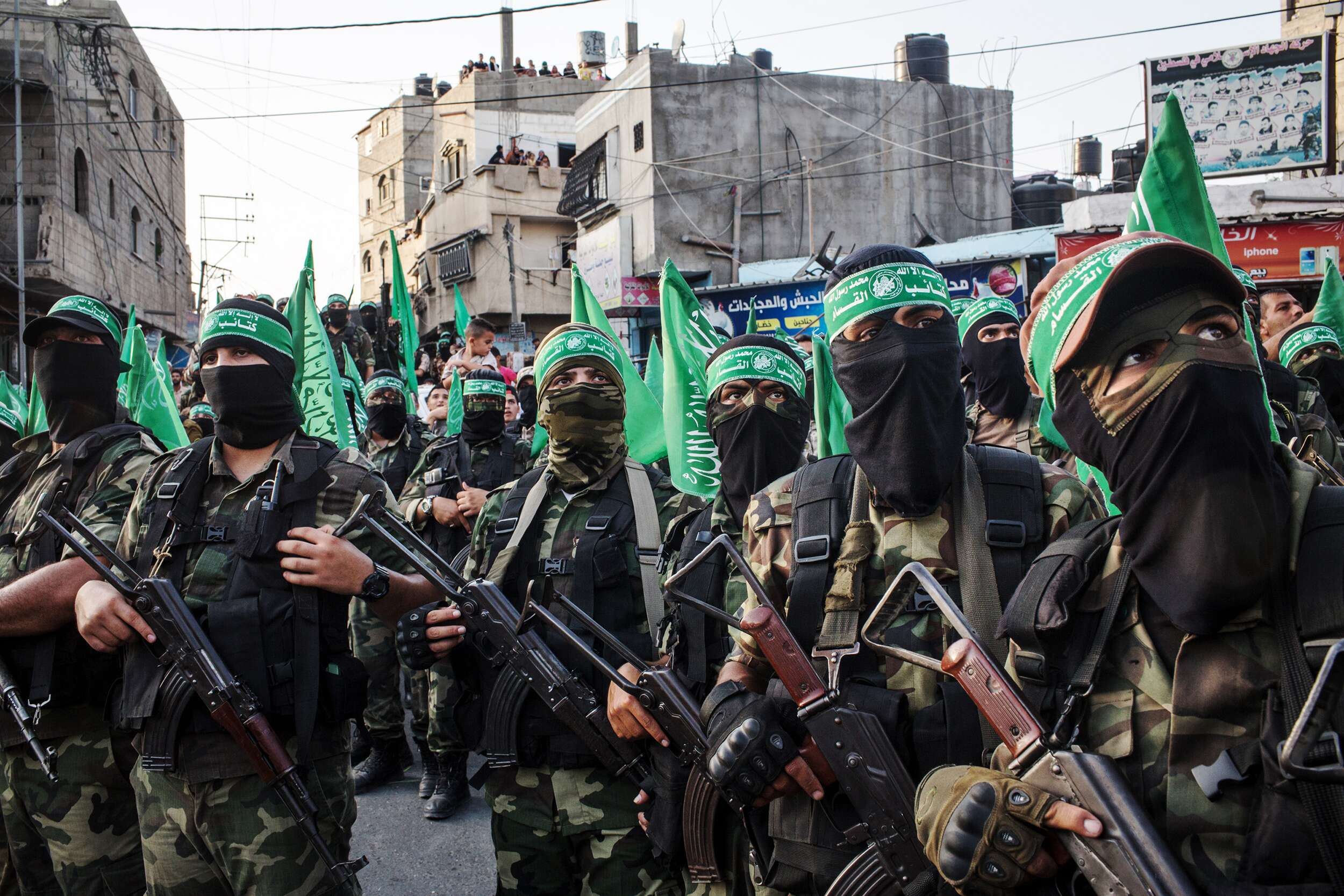The Analytical Patriotic Voice (TAPAV) of the Political Science Alumni University of Ibadan has called for a permanent ceasefire in the ongoing Israel-Hamas war.
The call was part of the resolutions of the body in a communique made available to Newsdiaryonline.
TAPAV said “As the war grinds on, we join our patriotic voice, with those of peace-loving people across the globe, calling for permanent ceasefire, which must be predicated on realistic security measures and balanced pressures.
- The UN Security Council should initiate a comprehensive investigation of Israel’s claim that civilian infrastructures, hospitals and schools, have been turned to embedded military facilities by Hamas in the Gaza Strip. The International Criminal Court (ICC) is already in the process of collecting evidences of war crimes presumably being committed by Hamas and Israel.
- We believe that a resilient diplomatic approach would be more ideal in finding solution to the Israel-Palestine conflict.
- No group of people must seek for other people’s non-existence.
Full text
POLITICAL SCIENCE ALUMNI
[The Analytical Patriotic Voice] UNIVERSITY OF IBADAN.
COMMUNIQUE ON
ISRAEL -HAMAS WAR IN THE PALESTINIAN STRUGGLE FOR STATEHOOD
I. Preamble
The Israel-Palestine conflict, within the broader Arab-Israel conflict, is one of the most protracted and intractable conflicts in the world. This conflict was again highly inflamed by the Palestinian Hamas militant group on October 7, 2023, in a more gruesome and ferocious surprise attacks on Israel since 1948. Israel’s retaliatory responsive attacks against the Hamas-ruled Gaza enclave have resulted in what has become the Israel-Hamas war.
When the war entered its sixth week, precisely on November 11, over 11, 000 people were believed to have been killed in Gaza, according to the Palestinian Ministry of Health in the Hamas- ruled Gaza. On the Israeli side, over 1,200 people were said to have been killed by Hamas on October 7. Also, more than 240 people were taken hostages by Hamas, from 25 countries. International pressures have mounted as the Israeli bombardments on Gaza have continued, which the Israeli military affirmed were against Hamas, but have claimed civilian deaths and caused humanitarian crisis.
The conflict is complex and multifaceted, with a deep-rooted history and a variety of contributory factors.
The Analytical Patriotic Voice (TAPAV)—the Policy, Program, Events Analyses wing—of the Political Science Alumni, University of Ibadan, acknowledges the gravity of the conflict between Israel and Hamas, recognising the profound impact on regional stability and global peace and security.
II. Consequences of Hamas’ Approach on Palestinian Statehood
While Hamas’ approach may resonate with most Palestinians, it has generated significant challenges to achieving a peaceful resolution and Palestinian statehood. Hamas’ use of armed resistance and refusal to recognise Israel has led to its designation as a terrorist organisation by several countries, limiting its international legitimacy, especially among the major powers. This isolation hampers potential diplomatic negotiations and cooperation with key stakeholders.
Humanitarian Impact: The cycle of violence between Hamas and Israel has resulted in civilian casualties and widespread suffering, especially in Gaza. The Palestinian people bear the brunt of this conflict, with infrastructure damage, limited access to basic services, and a stagnant economy. Such consequences would hinder the prospects for a stable and prosperous Palestinian state.
Internal Palestinian Divisions: Hamas’ control of the Gaza Strip, separate from the Palestinian Authority in the West Bank has led to a political divide among Palestinians. This division weakens their collective bargaining power and impedes a unified front in negotiations with Israel. It has been part of Israeli government’s strategy, since 2019, to isolate the Palestinians in Gaza, governed by Hamas, from the Palestinians in the West Bank. This articulated policy, among others, the Israeli right had diligently followed for many years. This, according to some analysts, led inexorably and unpredictably to the October 7 slaughters. Unfortunately, too, Israel’s peace talks with the Fatah-controlled Palestinian Authority in the West Bank have not made significant progress since 2014.
III. Implications of the Hamas-Israel war for the Middle East, the world, and
specifically Africa and Nigeria.
The Hamas-Israel war has a number of implications for the broader Palestinian struggle for statehood, the region, the world, and specifically Africa and Nigeria. For the Palestinians, the war has further undermined their hopes for achieving an independent state. The war has also led to a deterioration in the humanitarian situation in the Gaza Strip, with more than 2 million people living in poverty and facing a shortage of basic necessities.
• For the region, the war has contributed to instability and violence. The war has also raised tensions between Israel and its neighbours, and has increased the risk of a wider conflict, if not curtailed.
• For the world, the war has highlighted the need for a lasting solution to the Israeli- Palestinian conflict. The war has also shown the dangers of dividing the world into camps, for or against either side. If allowed to fester, there is the risk of bringing the world to a collision.
• For Africa, the war has a number of implications. First, the war has the potential to destabilize the region and lead to an increase in terrorism. Second, the war could have a negative impact on Africa’s economy, as it could disrupt trade and investment. Third, the war could lead to an increase in refugees and migrants fleeing to Africa from the region.
• For Nigeria, her neutral approach to the conflict was epitomised by the Minister of Foreign Affairs, Ambassador Yusuf Tuggar, who urged both parties “to exercise restraint and prioritise the safety and well-being of civilians.” He reiterated that ” the prayer of the Nigerian state is with those who have lost their lives in the conflict….” However, Nigeria’s assumed neutrality is under strain as she has already been assigned, among member states of the Organization of Islamic Cooperation (OIC), to mount pressure on the international community to demand for ceasefire.
IV. Recommendations
As the war grinds on, we join our patriotic voice, with those of peace-loving people across the globe, calling for permanent ceasefire, which must be predicated on realistic security measures and balanced pressures.
• The UN Security Council should initiate a comprehensive investigation of Israel’s claim that civilian infrastructures, hospitals and schools, have been turned to embedded military facilities by Hamas in the Gaza Strip. The International Criminal Court (ICC) is already in the process of collecting evidences of war crimes presumably being committed by Hamas and Israel.
• We believe that a resilient diplomatic approach would be more ideal in finding solution to the Israel-Palestine conflict.
• No group of people must seek for other people’s non-existence.
• Under President Joe Biden administration, we strongly recommend that the six major powers—United States, United Kingdom, Russia, China, Germany and France— should convene a comprehensive peace summit to resolve the Israel-Palestine conflict. Other countries in the region should include Saudi Arabia, United Arab Emirates, Egypt and Qatar. If it is two-state or one-state reality solution the parties want, they should decide once and for all.
• The Nigerian government need to be wary of its involvement in the conflict of the region. Nigeria is a member of the Organization of Petroleum Exporting Countries (OPEC), and some of them have suggested weaponizing oil supply in the conflict. The impact that would have on the Nigerian economy is sure to be profound, either positive or negative. And even though Nigeria is a member of the OIC, Nigeria remains a multi-religious, pluralistic and secular state.
V. Conclusion
The Israeli-Hamas conflict is a complex and intractable conflict with no easy solutions. However, it is important to continue to work towards a relative peaceful resolution of the conflict. This will require the international community to play a more active role in mediating between the two sides and pressuring them to implement a two-state solution or one-state reality as they may so choose. TAPAV’s position is further supported by former US President Obama’s statement on the conflict, in which he said: “In dealing with what is an extraordinary complex situation where so many people are in pain and passion are understandably running high, all of us need to do our best to put in our best values rather than our worst fears on display. This means actively opposing anti-Semitism in all its forms everywhere. It means rejecting efforts to minimize the terrible tragedy that the Israeli people have endured, as well as the morally bankrupt suggestion that can somehow justify the deliberate slaughter of innocent people. It means rejecting anti-Muslim, anti-Arab or anti-Palestinian sentiment. It means refusing to lump all Palestinians with Hamas or other terrorist groups.”
It is our sincere hope that Hamas approach would be reconsidered and allow the Jewish State of Israel to exist side by side an Arab State of Palestine in peace and security. This will be good for the peace of the region and the world.
Signed:
Dr. Ajinde Oluwashakin Bolaji Olumide Akeem
Chairman, Analytical Patriotic Voice Secretary, Analytical Patriotic Voice
NB: The Analytical Patriotic Voice is the policy, program, issue, event analysis arms of the Political Science Alumni, University of Ibadan Nigeria.




